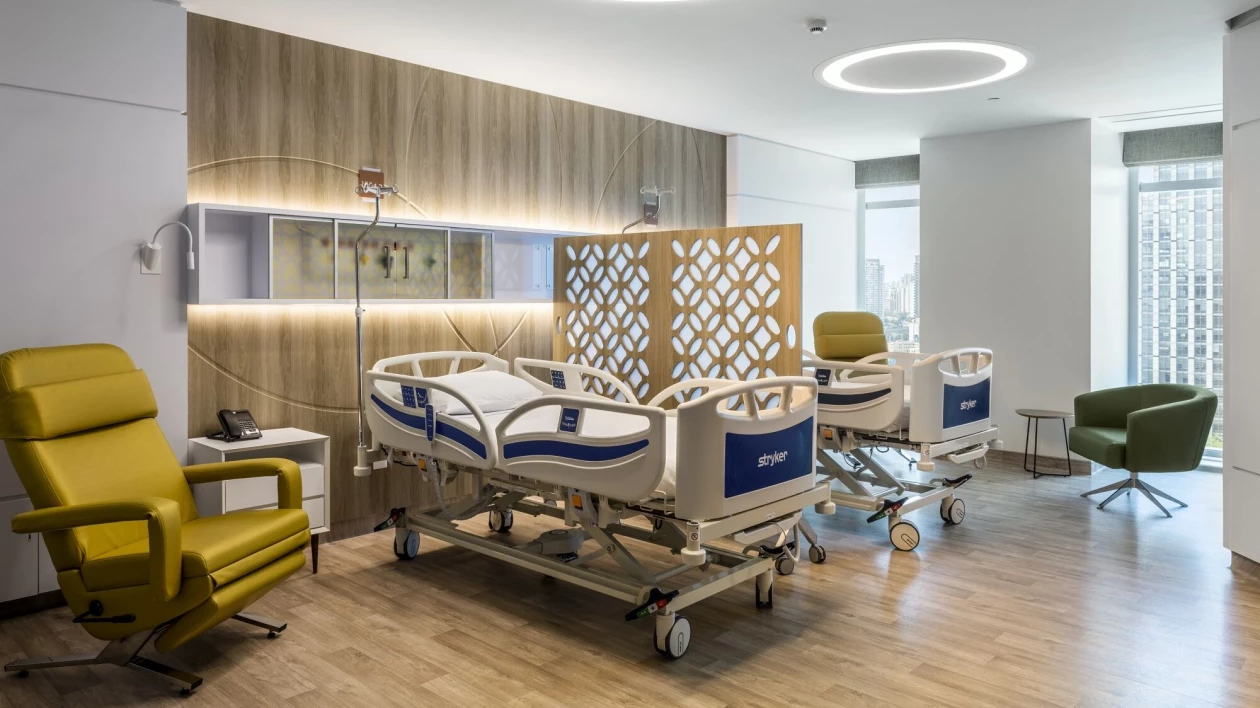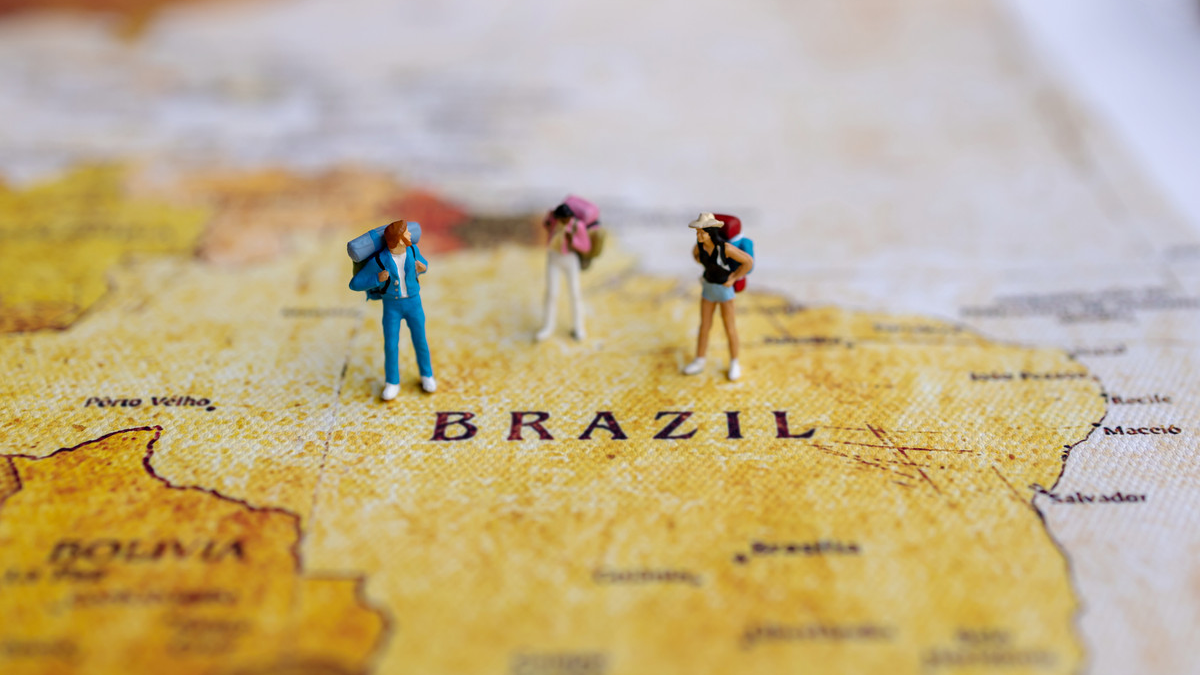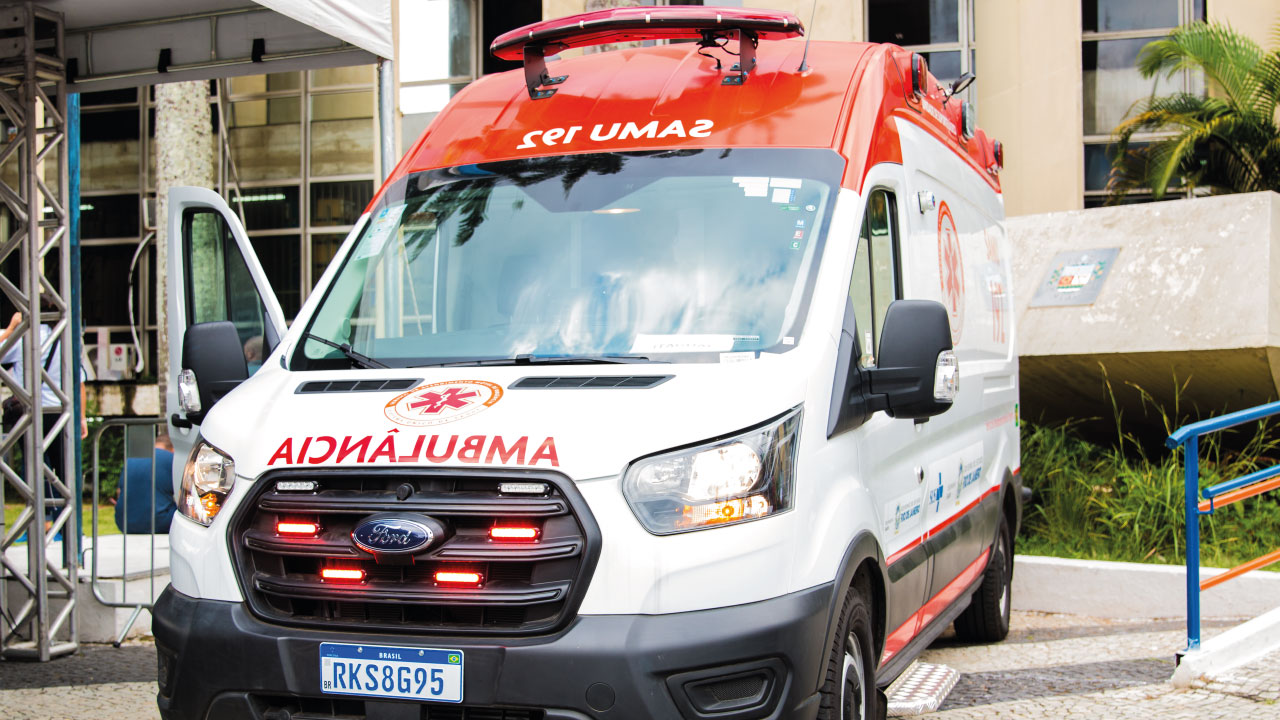Brazil, a vibrant and diverse country, has become an increasingly popular destination for digital nomads seeking new experiences and a unique lifestyle. As you plan your remote work adventure in this South American nation, understanding the healthcare landscape is paramount. This comprehensive guide will delve into everything you need to know about healthcare in Brazil, focusing on crucial aspects like health insurance, the intricacies of the SUS system, the benefits of private clinics, and the importance of travel insurance.
Navigating a new country’s healthcare system can be daunting, especially when faced with questions about insurance coverage, emergency care, and the differences between public and private access. Our aim is to clarify these concerns, providing digital nomads with the essential information to ensure their well-being while living and working in Brazil. We will explore how the Brazilian healthcare system operates, what options are available to foreigners, and how to make informed decisions to protect your health and finances. This knowledge is vital for a smooth and secure experience, helping you avoid unexpected medical costs and ensuring peace of mind throughout your stay.
Understanding the Brazilian Healthcare Landscape: The SUS System vs. Private Clinics Brazil

Brazil operates a dual healthcare system, comprising the public Sistema Único de Saúde (SUS) and a robust private sector. Understanding the nuances of each is crucial for digital nomads, as it directly impacts access to care, waiting times, and overall health insurance needs. The SUS system offers universal coverage, while private clinics in Brazil provide an alternative for those seeking different levels of service.
The SUS System: Universal Access and Its Realities
The SUS system is Brazil’s public healthcare network, established in 1988 with the principle of universal access. This means that healthcare services are available to all residents, including foreign nationals with a valid visa, and even undocumented individuals, free of charge at the point of service [1, 2, 3]. There is no waiting period to join the SUS system, and it is designed to cover a comprehensive range of services, from basic preventive care to complex surgeries and pharmaceutical assistance [2]. This accessibility is a significant advantage, particularly for emergency care, where anyone can receive treatment at a public hospital by simply presenting their passport [4].
However, the reality of the SUS system often involves challenges. Long wait times for appointments and procedures, overcrowded facilities, and resource limitations are common, especially in remote or less developed areas [5]. While major urban centers generally offer better-equipped public hospitals, the quality of care can vary significantly across the country.
For digital nomads, relying solely on the SUS system for non-emergency care might lead to delays and potential frustration. For instance, accessing specialized services or non-emergency treatments might be smoother if you have a CPF (Brazilian tax ID) or CNS (SUS card) [6]. While the SUS system is a vital safety net, many foreign residents and digital nomads opt for supplementary private care to ensure prompt and consistent medical attention.
Private Clinics in Brazil: Quality, Convenience, and Health Insurance
For those prioritizing faster access, shorter wait times, and more comfortable facilities, private clinics in Brazil offer a compelling alternative. The private healthcare sector in Brazil is well-developed, particularly in major cities like São Paulo, Rio de Janeiro, and Belo Horizonte. These private hospitals and clinics often boast modern equipment, highly trained medical professionals, and multilingual staff, with standards comparable to those found in North America and Europe [4]. Some premium facilities, such as Hospital Israelita Albert Einstein in São Paulo, are internationally accredited and recognized for their excellence [7].
Accessing private clinics in Brazil typically requires private health insurance or direct payment. While the SUS system is free, private medical services come at a cost. A private doctor’s visit can range from R$ 175 to R$ 350 (US$ 35–US$ 70 / € 32–€ 65), and a dental cleaning is approximately R$ 100 (US$ 20 / € 18.50) [8]. For more serious conditions requiring hospitalization, costs can quickly escalate into thousands of dollars or euros. This is where robust health insurance becomes indispensable. Many expats and digital nomads choose private health insurance plans to avoid unexpected costs and ensure access to preferred facilities and specialists. The private insurance market is regulated, offering various tiered plans with different levels of coverage and services [9].
The Interplay Between SUS and Private Healthcare
It’s important to note that the SUS system and private clinics in Brazil are not entirely separate entities. In some instances, private healthcare facilities collaborate with SUS for specific treatments or procedures, especially in areas where public resources might be strained [10]. This integrated approach can sometimes benefit patients, but generally, the choice between public and private care depends on individual needs, financial capacity, and the urgency of the medical situation. For digital nomads, understanding this dual system is key to making informed decisions about their health insurance and overall healthcare strategy.
Health Insurance Brazil: Options for Digital Nomads and the Role of Travel Insurance

For digital nomads, securing appropriate health insurance in Brazil is a critical step in ensuring peace of mind and financial security. While the SUS system provides a safety net for emergencies, many remote workers opt for private health insurance or comprehensive travel insurance to access higher quality care, avoid long wait times, and cover a broader range of medical needs. This section explores the various insurance options available and their relevance to your stay in Brazil.
Private Health Insurance for Long-Term Stays
Private health insurance plans in Brazil are designed for residents and long-term visitors, offering extensive coverage within the private healthcare network. These plans typically provide access to a wide array of private clinics and hospitals, often with English-speaking staff and state-of-the-art facilities. The cost of private health insurance can vary significantly based on age, coverage level, and the provider. For young adults, plans might start around R$ 450 (US$ 90 / € 83) per month, while more comprehensive plans or those for older individuals can range from R$ 1,100–R$ 1,600 (US$ 220–US$ 320 / € 203–€ 296) per month [8].
When choosing private health insurance in Brazil, it’s essential to carefully review the policy details, including deductibles, co-payments, coverage limits, and exclusions. Some plans may offer direct billing with certain hospitals, simplifying the payment process. Reputable international providers like Cigna Global and William Russell offer plans specifically tailored for expats and digital nomads, ensuring coverage not only in Brazil but often worldwide [11, 12]. These plans are particularly beneficial for those planning to stay in Brazil for an extended period, as they provide consistent access to private medical services and help manage potential digital nomad expenses related to healthcare.
Travel Insurance: A Short-Term Solution with Limitations
Travel insurance is primarily designed for short-term trips and typically covers medical emergencies, trip cancellations, and lost luggage. While some travel insurance policies may offer limited medical coverage in Brazil, they are generally not a substitute for comprehensive health insurance for long-term stays. However, for digital nomads on shorter visits (e.g., up to 90 days), a robust travel insurance policy can be a cost-effective way to cover unexpected medical emergencies and provide peace of mind.
Providers like SafetyWing and Atlas Travel Insurance are popular choices among digital nomads, offering flexible plans that can be purchased and renewed while on the go [13, 14]. SafetyWing, for instance, offers plans starting from around US$ 56.28 per month, which includes medical coverage [13]. It’s crucial to understand that while travel insurance can cover emergency medical treatment, it often does not cover routine check-ups, pre-existing conditions, or long-term care. Therefore, for digital nomads planning to reside in Brazil for more than a few months, upgrading to a dedicated health insurance plan is highly recommended to avoid significant digital nomad expenses in case of non-emergency health issues.
Digital Nomad Visa Requirements and Health Insurance
For digital nomads applying for the VITEM XIV visa, health insurance in Brazil is a mandatory requirement. Applicants must provide proof of health insurance valid for at least one year to satisfy one of the conditions for obtaining the visa [15]. This requirement underscores the importance of having adequate coverage before arriving in the country.
While some sources initially suggested that health insurance might not be strictly required for the digital nomad visa, recent updates and consular requirements confirm its necessity [16, 17]. The policy should ideally cover emergencies, hospitalization, and repatriation, with a high coverage ceiling recommended due to the potential high cost of private medical care in Brazil [15]. This ensures that your digital nomad expenses for healthcare are managed effectively from the outset.
Choosing the Right Coverage: Key Considerations
When selecting your health insurance or travel insurance, consider the following:
- Duration of Stay: For short visits, travel insurance might suffice. For longer stays, private health insurance is essential.
- Coverage Level: Assess your medical needs and choose a plan that covers routine care, specialists, and emergencies.
- Network of Providers: Ensure the insurance plan has a wide network of hospitals and private clinics in Brazil in your chosen city.
- Repatriation Coverage: This is crucial in case you need to be transported back to your home country for medical reasons.
- Customer Service: Look for providers with 24/7 customer support and multilingual assistance.
By carefully evaluating these factors, digital nomads can secure the right health insurance or travel insurance to protect their well-being and manage their digital nomad expenses effectively while enjoying their time in Brazil.
Emergency Healthcare in Brazil: What to Expect

Understanding how to navigate medical emergencies is a top concern for digital nomads. Brazil’s dual healthcare system means that emergency care is available through both the SUS system and private clinics Brazil. Knowing the protocols and what to expect can significantly reduce stress and ensure timely treatment. Your health insurance Brazil or travel insurance will play a crucial role in determining your options during an emergency.
Accessing Emergency Care through the SUS System
In Brazil, anyone, regardless of their nationality or immigration status, is entitled to emergency medical care through the SUS system [1, 2]. This means that if you experience a sudden illness or injury, you can go to any public hospital or UPA (Unidade de Pronto Atendimento – Emergency Care Unit) and receive treatment. You will not be turned away, and the care provided will be free of charge at the point of service. This is a significant benefit, especially for those without comprehensive health insurance Brazil.
However, public emergency rooms can be extremely busy, leading to long waiting times. The quality of care, while generally adequate for life-threatening conditions, may vary. Language barriers can also be a challenge, as not all staff in public facilities will speak English. It is advisable to have a translation app or a basic understanding of Portuguese medical terms for critical situations. While the SUS system provides essential emergency services, for non-life-threatening emergencies or those seeking faster, more comfortable care, private clinics Brazil are often preferred.
Emergency Care in Private Clinics Brazil
For digital nomads with private health insurance Brazil or robust travel insurance, accessing emergency care through private clinics Brazil and hospitals is often the preferred option. Private emergency rooms typically have shorter waiting times, more comfortable environments, and a higher likelihood of English-speaking staff. These facilities are generally well-equipped and offer a higher standard of care, which can be particularly reassuring during a medical crisis.
Before an emergency arises, it is highly recommended to identify the nearest private hospitals or clinics that are part of your health insurance Brazil network. Keep their contact information readily available. In a medical emergency, you may need to pay upfront for services at a private facility and then seek reimbursement from your insurance provider. Therefore, understanding your policy’s reimbursement process and having access to sufficient funds or a credit card is crucial. This proactive approach can help manage unexpected digital nomad expenses related to emergency healthcare.
What to Do in a Medical Emergency
- Assess the Situation: Determine if it’s a life-threatening emergency. For severe cases, call 192 for SAMU (Serviço de Atendimento Móvel de Urgência – Mobile Emergency Care Service) or head directly to the nearest hospital.
- Identify Your Options: If you have private health insurance Brazil or travel insurance, locate a private hospital in your network. Otherwise, a public hospital or UPA is your immediate option.
- Bring Identification and Insurance Information: Always carry your passport, visa, and health insurance Brazil card (if applicable). This will expedite the registration process.
- Communicate Clearly: If there’s a language barrier, use a translation app or ask for an English-speaking staff member. Be clear about your symptoms and medical history.
- Understand Costs and Reimbursement: If using private care, clarify payment procedures and keep all receipts and medical reports for insurance claims. This is vital for managing your digital nomad expenses.
Being prepared for medical emergencies is a key aspect of responsible travel and living abroad. While the SUS system offers a valuable safety net, having private health insurance Brazil or comprehensive travel insurance provides an added layer of security and access to preferred services, ensuring your well-being as a digital nomad in Brazil.
Practical Tips for Digital Nomads: Navigating Healthcare in Brazil
Beyond understanding the SUS system and securing health insurance Brazil, digital nomads need practical advice for navigating the Brazilian healthcare landscape on a daily basis. From finding a doctor to understanding pharmacy services and cultural nuances, these tips will help you manage your health effectively and minimize unexpected digital nomad expenses related to medical care.
Finding a Doctor and Specialist Care
For those with private health insurance Brazil, finding a doctor is relatively straightforward. Your insurance provider will typically have a network of approved private clinics Brazil and specialists. Many private hospitals and clinics in major cities have English-speaking doctors, especially in specialties popular with expats. Online platforms and expat forums can also be valuable resources for recommendations. When scheduling an appointment, it’s always a good idea to confirm if the doctor speaks English to avoid communication issues.
If you are relying on the SUS system, you will typically start with a visit to a Unidade Básica de Saúde (UBS – Basic Health Unit) or a Posto de Saúde (Health Post) for primary care. From there, you may be referred to a specialist if needed. Be prepared for longer waiting times for specialist appointments within the public system. Having a CPF (Brazilian tax ID) can streamline the process for non-emergency public healthcare services [6].
Pharmacies and Medications
Pharmacies (farmácias) are widely available throughout Brazil, often operating 24/7 in larger cities. Many medications that require a prescription in North America or Europe can be purchased over-the-counter in Brazil, such as certain antibiotics or pain relievers. However, it is always advisable to consult a doctor before self-medicating. Pharmacists (farmacêuticos) are highly trained and can offer advice on minor ailments and common medications. They can also often administer injections and perform basic health checks.
When purchasing medications, be aware that brand names may differ from those in your home country. If you take specific prescription medications, bring a copy of your prescription from your home doctor, including the generic name of the drug. This will help Brazilian doctors or pharmacists find an equivalent. While medication costs are generally reasonable, your health insurance Brazil may cover prescription drugs, so check your policy details to manage your digital nomad expenses.
Cultural Considerations and Communication
Brazilian medical culture can be more direct and personal than in some Western countries. Doctors may ask more personal questions, and physical examinations might be more thorough. Building a good rapport with your healthcare provider is valued. While many medical professionals in private facilities speak English, learning some basic Portuguese medical terms can be incredibly helpful, especially in public settings or smaller towns. Phrases like Estou com dor (I am in pain), febre (fever), dor de cabeça (headache), and remédio (medicine) can be very useful.
Mental Health Support
Living abroad as a digital nomad can sometimes lead to stress, loneliness, or other mental health challenges. Brazil has a growing awareness of mental health, and psychological and psychiatric services are available. Many private therapists and psychiatrists offer services in English, particularly in major cities. Your health insurance Brazil may cover mental health services, so check your policy. Additionally, online therapy platforms can provide accessible support regardless of your location in Brazil.
Staying Healthy: Prevention is Key
Prevention is always better than cure. Digital nomads should prioritize staying healthy by:
- Vaccinations: Ensure all routine vaccinations are up-to-date. Consult your doctor about recommended vaccinations for Brazil, such as Yellow Fever, Hepatitis A and B, and Typhoid.
- Food and Water Safety: Drink bottled or filtered water. Be cautious with street food, especially in less touristy areas. Wash fruits and vegetables thoroughly.
- Sun Protection: Brazil has intense sun. Use high-SPF sunscreen, wear hats, and seek shade, especially between 10 AM and 4 PM. Temperatures can easily reach 30°C (86°F) or higher in many regions.
- Insect Protection: Use insect repellent, especially in areas with mosquitoes, to prevent diseases like dengue, zika, and chikungunya. Consider sleeping under mosquito nets in some regions.
- Personal Safety: Be aware of your surroundings, especially in larger cities. Avoid walking alone at night in unfamiliar areas. Personal safety contributes to overall well-being.
By taking these proactive steps and understanding the practicalities of healthcare in Brazil, digital nomads can enjoy a healthier and more secure experience, minimizing potential health-related digital nomad expenses and focusing on their work and adventures.
Conclusion: Ensuring Your Well-being as a Digital Nomad in Brazil
Navigating healthcare in a foreign country can seem complex, but with the right information and preparation, digital nomads can confidently manage their health and well-being in Brazil. The country offers a unique blend of universal public healthcare through the SUS system and high-quality private medical services via private clinics Brazil. Understanding how these systems operate, and the role of health insurance Brazil and travel insurance, is fundamental to a secure and enjoyable experience.
For those planning a long-term stay, investing in comprehensive private health insurance Brazil is highly recommended. While the SUS system provides a crucial safety net for emergencies, private coverage offers faster access, greater comfort, and a wider range of services, helping to mitigate unexpected digital nomad expenses. For shorter visits, a robust travel insurance policy can provide essential emergency medical coverage.
Brazil is a country of immense beauty and opportunity for remote workers. By proactively addressing your healthcare needs, from securing appropriate health insurance Brazil to understanding emergency protocols and adopting healthy habits, you can minimize risks and maximize your time exploring its vibrant culture and stunning landscapes. With careful planning, your health will be one less thing to worry about, allowing you to fully embrace your digital nomad journey in Brazil.
References
[1] International Citizens Insurance. (n.d.). Brazilian Healthcare System. Retrieved from https://www.internationalinsurance.com/health/systems/brazil.php
[2] Commonwealth Fund. (2020, June 5). Brazil | International Health Care System Profiles. Retrieved from https://www.commonwealthfund.org/international-health-policy-center/countries/brazil
[3] Washington Post. (2025, June 29). I got an ambulance ride, CT scan and ER care in Brazil. My bill: $0. Retrieved from https://www.washingtonpost.com/world/2025/06/29/brazil-health-care-sus-hospitals/
[4] Nomada. (2025, May 5). Health insurance in Brazil: all you need to know. Retrieved from https://nomada.co/brazil/health-insurance-brazil/
[5] Out Of Office by CXC. (2024, November 5). Digital Nomad Brazil. Retrieved from https://www.getoutofoffice.com/destinations-country/brazil
[6] Reddit. (2024, February 6). Is health care really universal for foreigners of any age? : r/Brazil. Retrieved from https://www.reddit.com/r/Brazil/comments/1akhu5w/is_health_care_really_universal_for_foreigners_of/
[7] Nomada. (2025, May 5). Health insurance in Brazil: all you need to know. Retrieved from https://nomada.co/brazil/health-insurance-brazil/
[8] Expatis. (2025). How Much is the Cost of Life in Brazil in 2025? Retrieved from https://www.expatis.com/en/cost-of-life-in-brazil-for-expats-and-nomads/
[9] Reddit. (2023, December 8). Brazil private health insurance – is it really this insanely good? – Reddit. Retrieved from https://www.reddit.com/r/Brazil/comments/18dm7x3/brazil_private_health_insurance_is_it_really_this/
[10] Pacific Prime. (n.d.). International Health Insurance in Brazil. Retrieved from https://www.pacificprime.lat/country/brazil-health-insurance/
[11] Cigna Global. (n.d.). International Health Insurance in Brazil. Retrieved from https://www.cignaglobal.com/where-we-cover/brazil
[12] William Russell. (n.d.). How To Get International Health Insurance In Brazil. Retrieved from https://www.william-russell.com/blog/health-insurance-brazil/
[13] Native Teams. (2025, July 29). 5 Best Digital Nomads’ Health Insurance To Use in 2025. Retrieved from https://nativeteams.com/blog/health-insurance-for-digital-nomads
[14] NerdWallet. (2024, August 12). 9 Best Nomad Travel Insurance Options. Retrieved from https://www.nerdwallet.com/article/travel/travel-insurance-options-for-digital-nomads
[15] Mondassur. (n.d.). What insurance is required for the VITEM XIV digital nomad visa? Retrieved from https://www.mondassur.com/en/what-insurance-is-required-for-the-vitem-xiv-digital-nomad-visa/
[16] Oliveira Lawyers. (n.d.). Health Insurance for Brazil Visas through Consulates. Retrieved from https://oliveiralawyers.com/services/cross-border/digital-nomad-visa/digital-nomad-health-insurance/
[17] Reddit. (2025, March 19). Need Help Nomad Health Insurance : r/Brazil. Retrieved from https://www.reddit.com/r/Brazil/comments/1jezkql/need_help_nomad_health_insurance/







Great article! It really covers the essentials of navigating healthcare in Brazil as a digital nomad. One thing I’m still trying to figure out is how to manage a pre-existing condition while constantly moving between countries. I found a resource that touches on this global challenge, sorry for the link but it helps clarify what I’m asking about: https://pillintrip.com/pt/article/your-health-doesnt-need-a-fixed-address-the-global-digital-nomads-guide-to-managing-chronic-conditions. Based on your experience and research, do you have any specific advice for someone needing regular medication or specialist care while basing themselves in Brazil?
Some really prime content on this site, saved to fav.